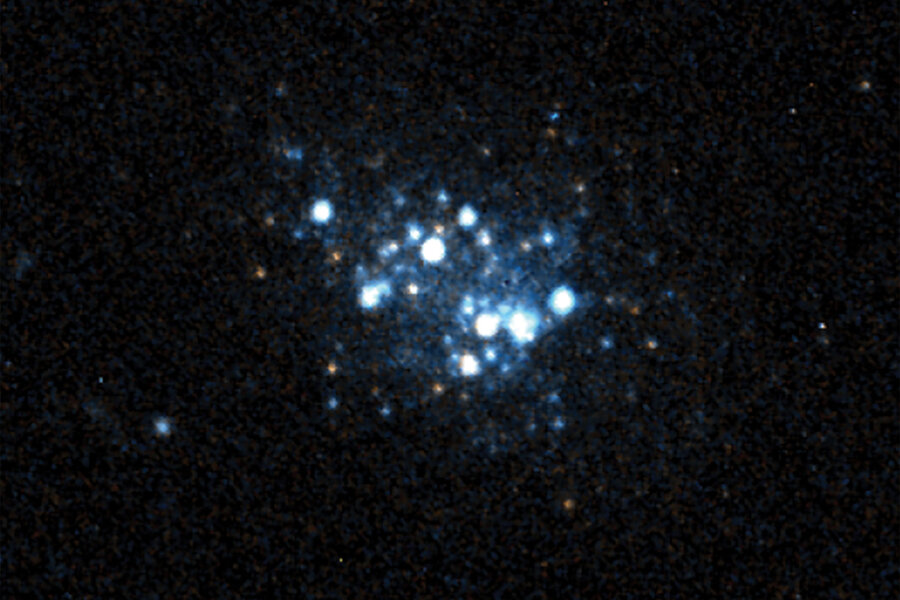Could this 'Little Lion' galaxy hold secrets about the Big Bang?
Loading...
A faint galaxy shining 30 million light-years away could help scientists learn more about the birth of the universe.
Researchers have discovered a galaxy with the lowest level of metals, or heavy chemical elements, ever observed in a star system. Galaxy AGC 198691, nicknamed Leoncino, or “Little Lion,” offers astronomers the chance to see what conditions were like directly after the formation events that caused the universe to form.
"Finding the most metal-poor galaxy ever is exciting since it could help contribute to a quantitative test of the Big Bang," Indiana University professor and co-author of the study John Salzer said in a press release. "There are relatively few ways to explore conditions at the birth of the universe, but low-metal galaxies are among the most promising."
In the immediate aftermath of the Big Bang, the only elements in universe were hydrogen, helium, and just a few other light elements. Metals formed later after the hydrogen and helium combined to form stars.
By tracking the traces of metals in a galaxy, scientists are able to tell how much evolution and star production the galaxy has gone through.
"Low metal abundance is essentially a sign that very little stellar activity has taken place compared to most galaxies," graduate student and lead author of the study Alec Hirschauer said in the release.
Astronomers are able to estimate the metal abundance in a galaxy by analyzing the light emitted. Spectroscopic observations enable scientists to view the full spectrum of light, much in the same way a prism disperses sunlight into a rainbow.
The presence of different elements like hydrogen and helium and metals create different types of light.
"A picture is worth a thousand words, but a spectrum is worth a thousand pictures," Professor Salzer said. "It's astonishing the amount of information we can gather about places millions of light years away."
Why is the Little Lion galaxy an exciting find for astronomers?
Low-metal abundance environments are mainly correlated with the beginning of the universe, so finding one now is a lot more challenging. And they are even rarer in Earth's neck of the universe – the Milky Way galaxy has created a lot of heavier elements.
Despite being 30 million light-years away, the Little Lion galaxy is still considered to be in our “local universe,” which includes anywhere within 1 billion light years of Earth. It’s relative proximity will make it much easier to study than low-metal galaxies much farther away.
"We're eager to continue to explore this mysterious galaxy," said Salzer. "Low-metal-abundance galaxies are extremely rare, so we want to learn everything we can."








